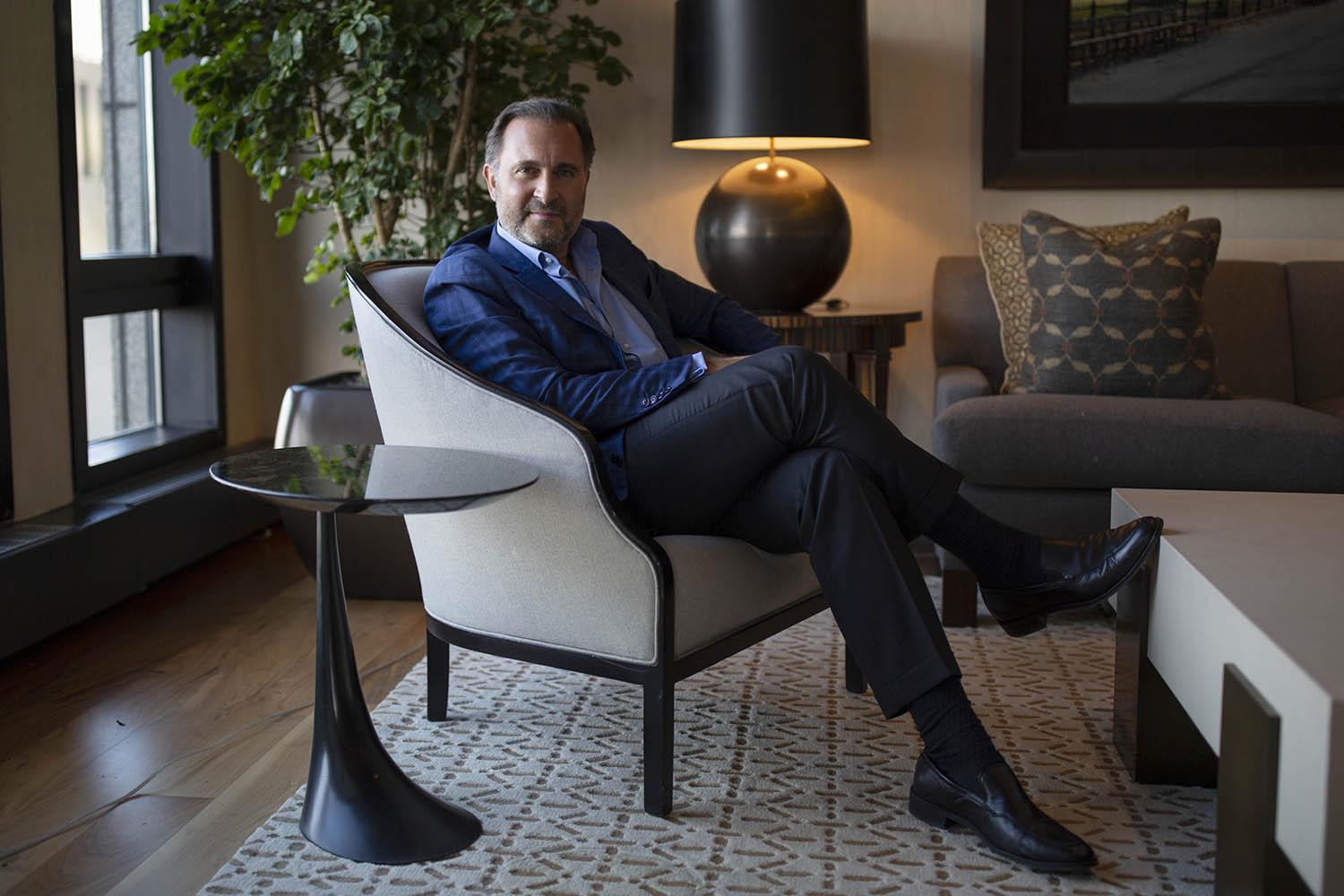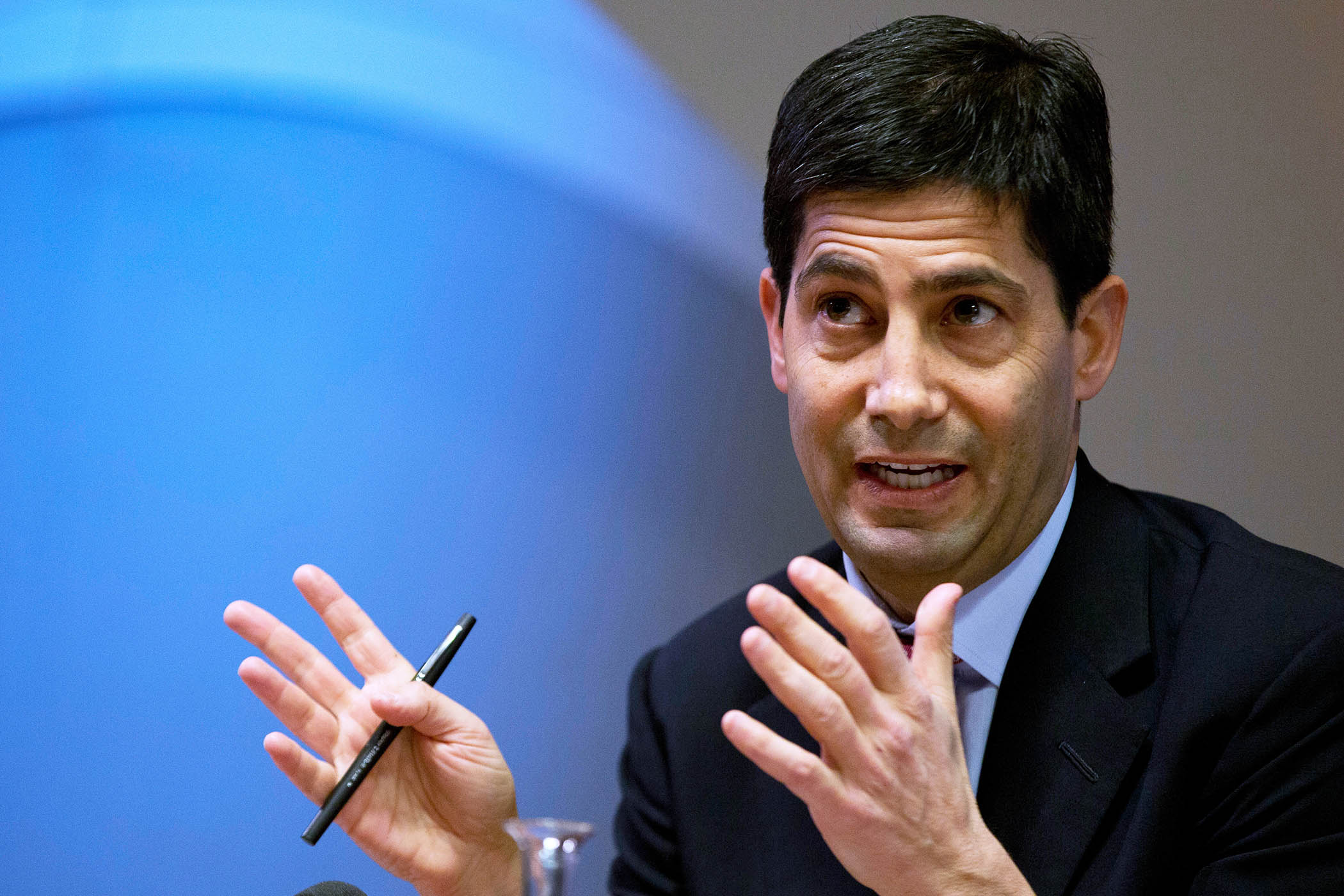Not long after The Telegraph ran a piece in February which decried the number of stopped clocks as a “symptom of Britain’s decaying public spaces,” the enormous digital clocks above the paper’s newsroom, showing the time around the world, also broke down. With the newspaper caught in a byzantine and controversial takeover battle, journalists could not help turning the breakdown into a joke.
After two years, the wait for new ownership seemed to come to an end on 23 May when the US private equity fund, Redbird Capital Partners, effectively declared itself the new owner with a £500m offer.
Three weeks on, there are signs the deal is far from done.
Redbird’s offer came a week after the UK government had cleared the way by setting the cap for foreign state ownership of newspapers at 15%. Over a year ago, the previous Conservative government had blocked an earlier joint venture between Redbird and IMI of Abu Dhabi amid fears over foreign state control of a British newspaper group. Audacious, messy and a geopolitical headache for both governments, the sighs of relief were widespread when Redbird came up with a new deal which limited state-backed IMI to a minority stake, while it became a controlling shareholder.
The newspaper announced an end to a period of “gruelling uncertainty”. Gerry Cardinale, the charismatic Redbird founder, addressed staff at The Telegraph’s Victoria headquarters and staff phones pinged with messages of congratulations amid talk of “a new era of growth” for the 170-year newspaper title.
But there are increasing concerns on both sides of the house that the government’s proposals could allow a consortium of foreign states to own a major media asset. This is because the draft legislation does not limit the number of states which can own 15% of any newspaper group.
With Redbird and Cardinale – a former Goldman Sachs banker who has made a fortune investing in media and sports assets – expected to retain the 25% stake typical for principal shareholders in this kind of deal, it is unlikely that five nation states could share control of The Telegraph via minority stakes of 15%. But the reality is that the proposed law itself would not stop them.
A cross-party MPs group, led by former Conservative party leader Iain Duncan Smith, has raised concerns over potential Chinese state influence but the most notable intervention came in a letter to the culture minister from Baroness Tina Stowell, the peer who had spearheaded last year’s rejection of state control.
Related articles:
She called the multiple state holdings “intolerable” in a letter to culture secretary Lisa Nandy. A subsequent letter signed by 50 Lords followed, and Lord Roberts expressed his outrage in The Telegraph. On Wednesday, government minister Stephanie Peacock announced that multiple 15% shareholdings would be ruled out with a draft published in a month’s time. Consultation is expected but not until after the summer recess.
A deal, which many confidently predicted would be completed by autumn, is yet again mired in legislative process and a growing backlash.
Newsletters
Choose the newsletters you want to receive
View more
For information about how The Observer protects your data, read our Privacy Policy
The saga of the sale of The Telegraph is not just the story of money, power and politics played out in a beleaguered industry, but one which speaks of Britain’s place in the world.
Consecutive British governments have courted foreign states to invest in UK plc. The best-known investments have been made in British football teams, but more recently they pitched for foreign-controlled funding of everything from wind farms to supermarkets, airports to nuclear plants such as Sizewell C.
The most controversial industry yet to find itself funded by foreign state aid is that of news organisations. What is Britain if not a state in which the fourth estate is untrammelled by government interference and control? Especially a government that is not even British.
The biggest irony is, perhaps, that The Telegraph, that bastion of Britishness supported by both big and small C conservatives, should find itself to be the key battleground.
As the writers of Yes, Minister had it about the house bibles of the British Communist and Conservative parties respectively: The Morning Star is read by people who think the country ought to be run by another country, and The Daily Telegraph is read by people who think it is.
Fraser Nelson, long-serving editor of The Spectator turned documentary film-maker and columnist, is one of the few people who spoke on the record to The Observer. “This talk of The Telegraph as the Manchester City [of news] is worrying. If you’re a football club, you can be part-owned by the devil himself, it doesn't matter. If you're a newspaper, it does matter.”
Most concerning for Nelson and many others wary of the involvement of foreign states is that many of the richest potential investors – from oil-rich Gulf states to China and Russia – are authoritarian. “You don't need much of an imagination to see what a corrosive influence this would be. If you’re a reporter, you’d be careful about what you say about a government that part-owns your title, or even its allies. Right now, no journalist would take money from an authoritarian regime – but if it part-owns a newspaper, what then? This erodes the cordon sanitaire. So this is why it's really quite a sinister move, not just for Britain, but for the development of a free press.”
Nelson believes the soft power that comes with media ownership is immense. “The play here is about government influence, and it’s about getting authoritarian regimes into the world of democratic media ownership, acquiring a powerful tool of ownership.”
One irony of this saga is that The Telegraph is only in this position because its previous (very British) owners used their paper assets as collateral for debts of £1.2bn. After the Telegraph Media Group and The Spectator, both part of the same group, were repossessed by Lloyd’s Bank almost exactly two years ago, former owners the Barclay family thwarted a proper auction by allowing Redbird IMI to pay off the debt instead.
Nelson, who appreciated the Barclays’ relatively hands-off proprietorial approach as Spectator editor, now realises that they used the titles as “collateral without our knowledge, and ultimately sold off in a kind of, you know, Dubai souk.”
Although the then Conservative government was apparently felt to be relatively sanguine about the US-fronted, UAE-funded bid for The Telegraph, it later agreed to a law change that limited the amount a sovereign wealth fund could invest in a news organisation. Last year’s election was called before the Sunak government could set the actual limit, though discussion at the time had centred around a single-digit cap.
The new law embarrassed Abu Dhabi, which found itself with an enormous debt and no newspaper to show for it, but it also irked other media owners, such as Lord Rothermere and Rupert Murdoch, who had occasion to seek foreign investment for their own ambitions.
In between last year’s failed Redbird IMI deal and Cardinale pressing the button on Plan B a few weeks ago, Redbird had tried to sell the media assets, spending a fortune on advisors such as George Osborne, Simon Robey at Robey Warshaw, and many others.
While potential buyers expressed an interest, they mainly baulked at a total £600m price needed for Redbird IMI to recoup its losses on the deal. In the end, only The Spectator was sold for £100m to Paul Marshall, investor in GB News and owner of UnHerd.
The closest anyone came was a ragtag army of investors gathered around British-born American newspaper publisher Dovid Efune. His online campaign argued that a “British bid for The Telegraph is best,” citing Churchill and the Blitz while gushing, “it’s not only the Tower of London that holds Britain’s crown jewels. Some are held in Fleet Street. And of those gems, The Telegraph is notable for its radiance.”
He failed to find enough backers with even Nadhim Zahawi, the former chancellor known to be friends of both the Barclays and many of Abu Dhabi’s ruling family, pulling out of the Efune bid a week after Cardinale announced his new deal.
It is little wonder Cardinale inspired Telegraph staffers who hoped for an end to the uncertainty. His impressive business and fortune amassed from assets which include UK production company All3Media and a stake in Skydance Entertainment which is bidding to buy Hollywood studio Paramount. He talked of a new global strategy for The Telegraph, turning it into “The New York Times of the centre right” and denied that he was looking for the quick returns typical of private equity investors.
In March, Redbird set up a UK company called Redbird Capital Partners (UK) Ltd, which is 100%-owned by Redbird USME LLC. (It’s not clear whether “ME” stands for “Middle East”.) Cardinale is identified as a person with significant control, which normally suggests more than 25% of the shares of a company.
Redbird has made it clear it wants “UK-based minority investors with print media expertise and strong commitment to upholding the editorial values of The Telegraph”. Sky has subsequently reported that Viscount Rothermere’s Daily Mail Group Trust was in talks to buy a 10% stake. With a reported price of £35m, this suggests an equity value for the business of £350m, leaving some £150m of debt, presumably retained by IMI. A spokesman for Redbird would not confirm the equity-debt ratio.
Sources close to Redbird dismiss the suggestion that there will be Chinese state – or any other state –funding. IMI is also understood to have agreed to be a passive investor without a board seat.
Meanwhile, the legislative battle continues. Clearly, keeping cash-rich investors and free-speech campaigners happy is a challenge for both sides of the house. One parliamentarian was dismissive of the incompetence of both governments: “The Tories in their late period decadence followed by early Starmer naivety. They are both out of their depth and desperate for money,” he said.
The government is expected to act, either by pushing ahead by relying on its majority or introducing an amendment of some kind, all before the summer recess. Telegraph insiders, who believed Cardinale was sure to seize control, now put his chances lower, even though he is really the only horse left in the race.
Meanwhile, with questions over its ownership paused again, a tiny green clock appeared underneath the giant one that used to belong to a US investment bank in the Telegraph newsroom. It looked for all the world like “your mum’s Casio”, according to one insider still waiting for a new owner to emerge.
Photograph by Griselda San Martin/Bloomberg via Getty Images


